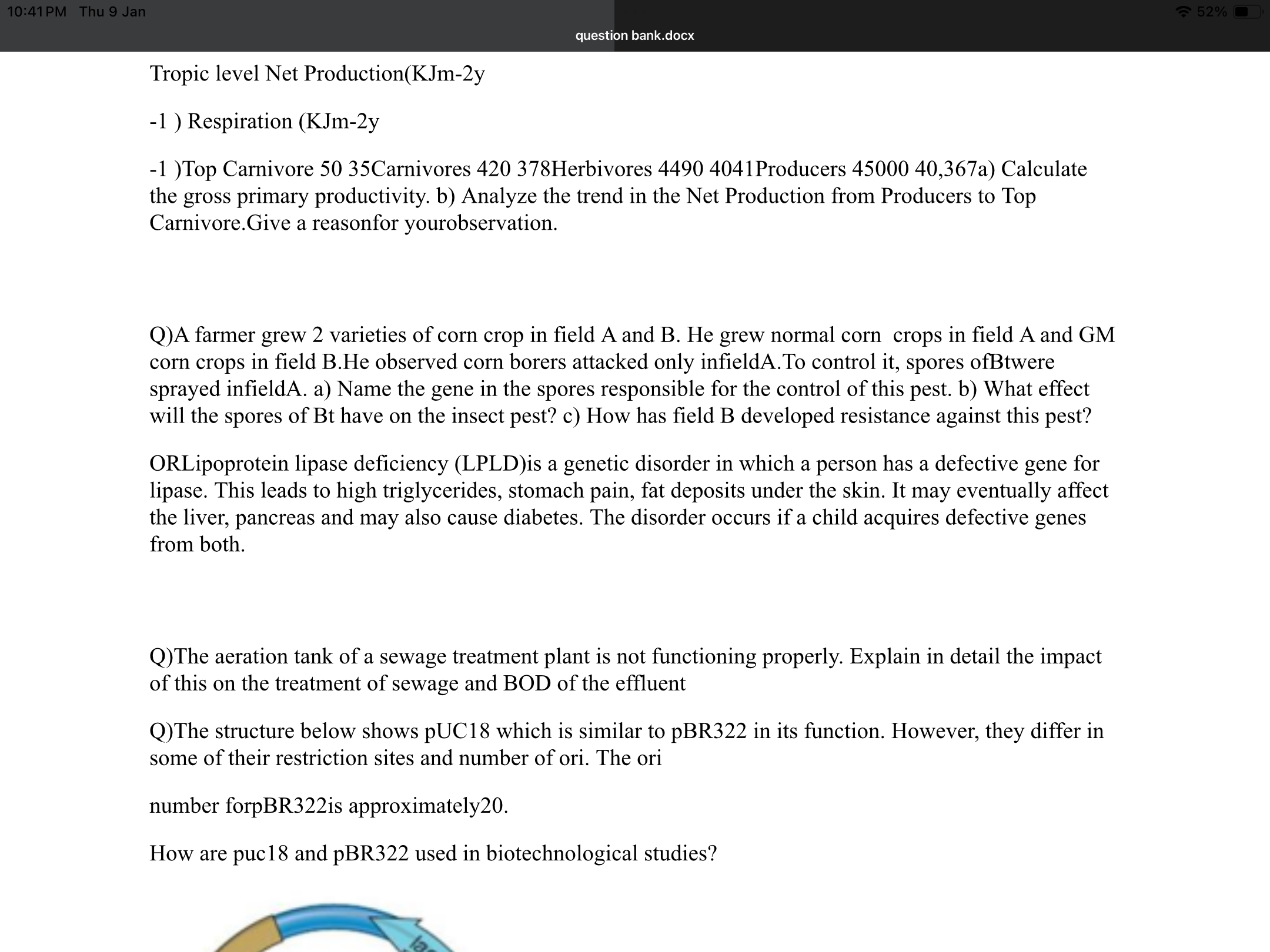a) Calculate the net production from producers to top carnivore. b) Analyze the trend in the net production from producers to top carnivore. c) Name the gene in the spores responsi... a) Calculate the net production from producers to top carnivore. b) Analyze the trend in the net production from producers to top carnivore. c) Name the gene in the spores responsible for the control of this pest. d) What effect will the spores of Bt have on the insect pest? e) How has field B developed resistance against this pest? f) Explain the impact of a non-functioning aeration tank on sewage treatment and BOD. g) Describe how pUC18 and pBR322 are used in biotechnological studies.

Understand the Problem
The question is asking about various biological and environmental concepts, including net production calculations, genetic pest resistance in corn crops, health impacts of genetic disorders, sewage treatment efficiency, and the use of plasmids in biotechnology. It covers a range of topics in biology and environmental science.
Answer
a) Sum post-respiration. b) Energy decreases up trophic levels. c) Cry gene. d) Toxin effect. e) Genetic modification. f) Increased BOD impact. g) Cloning use.
The answers are as follows: a) The net production is the sum after considering respiration losses. b) A decrease in energy through trophic levels due to energy loss. c) The gene is usually a cry gene. d) Bt spores affect insect pests by producing toxins. e) Resistance in field B developed possibly through genetic modification. f) A non-functioning aeration tank increases BOD due to lower oxygen levels. g) pUC18 and pBR322 are plasmids used in cloning and genetic engineering.
Answer for screen readers
The answers are as follows: a) The net production is the sum after considering respiration losses. b) A decrease in energy through trophic levels due to energy loss. c) The gene is usually a cry gene. d) Bt spores affect insect pests by producing toxins. e) Resistance in field B developed possibly through genetic modification. f) A non-functioning aeration tank increases BOD due to lower oxygen levels. g) pUC18 and pBR322 are plasmids used in cloning and genetic engineering.
More Information
Bacillus thuringiensis (Bt) is well-known for producing toxins that kill insect pests. Commonly used in genetically modified crops, Bt provides environmental benefits by reducing conventional insecticide use. Plasmids like pUC18 and pBR322 facilitate cloning processes by serving as vectors for gene insertion.
Tips
Ensure to account for respiration when calculating net production. Understand that energy is lost at each trophic level, hence decreased energy as you move from producers to top carnivores.
Sources
- Bacillus thuringiensis: a century of research, development and impact - onlinelibrary.wiley.com
- Bacillus thuringiensis (Bt)-based biopesticide: Success and applications - sciencedirect.com
- Impacts of Bt crops on non-target invertebrates and insecticide use - ars.usda.gov
AI-generated content may contain errors. Please verify critical information